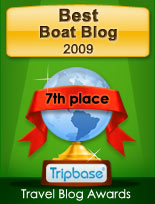From Wet to Dirty
“No hablo espanol. No intendo. Pero intendo “Loco” y tu no es loco…” I spoke softly to the old lady who was too ashamed, embarrassed, or injured to leave the small wooden shack in which she sat to visit the clinic. Holding my hand, she continued to speak as though I understood every word. She paused only to swallow hard the lump in her thoat that accompanied her tears.
My friend, Jessi, who works for the orphanage asked me moments before to leave the team of nurses and follow her. There was a lady who could not (or did not want to) leave her house. We walked a short distance on a dirt road walled with sugar cane. We approached a small wooden shack, roofed with palm leaves, a smoky tinge crept from its walls.
Jessi invited me in where she began to inspect the woman covered in soars. I watched as the woman, at first hesitant, explained something to Jessi. She would point to her legs as though indicating some type of pain running through them, then her voice would increase a she pointed toward the village. I sat in the background watching, trusting my eyes to translate what my ears failed to understand. After a short time we left and returned with some medicine.
The woman continued, this time to me. Now I softly held her hand and she communicated. I understand very (VERY) little Spanish. So instead I stood and listened. Jessi was heading back to the group of American nurses she was overseeing at the one day clinic set up for this small village. “You can stay here if you like,” she said. I stayed.
I stayed only to listen. To smile on occasion. To search this woman’s eyes for a connection deeper than language. One human. And with the little Spanish I knew tried to explain that I didn’t understand her, but knew she was not crazy (as she was apparently accused of being-that through translation). Before I left, I knelt down, told her she was beautiful, and kissed her on the cheek. It was the highlight of my day.
This was the third day in the Dominican Republic. It was a beautiful day. Most of the villagers who visited the make shift clinic had nothing wrong. Mothers would bring their children and explain to the nurses various ailments their children were experiencing. Stomach aches, headaches, coughs. Often phantom symptoms, most likely from a savvy mother making the most of a rare opportunity. Of course there were some legitimate cases of scabies, flu symptoms, high blood pressure, but fortunately nothing serious.
Nothing too eventful either, but not at all lacking in inspiration. For me it came in my shared moments with the villagers. The elderly woman was one. Another occurred at the end of the day as I chatted briefly with a kind blind man (through a translator). He used to work for the sugar cane companies managing the production numbers. Then about 10 years ago started to lose his vision. Now he can only decipher light from dark.

I told him sometimes in life there are images you hope always to carry with you, a sunset, a moment at the beach… I wondered if he carried any images with him. Snapshots of life. He paused for a moment, then answered it was hard for him to remember. I asked if I could take a picture with him so I could always remember this moment. He smiled. Once for yes. Once for the camera.
Otherwise, I was clinically useless so I spent most of the day smiling at people and just looking generally good. I can only assume the villagers agreed, as I’m not sure what else so many people would be talking about as they watched the gringo. We packed up and bounced back into town. Next up: the children.







3 comments
Undoubtably they all agreed with you… or at least the blind guy did.
Derek, you write well and I’m sure you communicated well with the woman despite your “language” barrier. 🙂
Hey Derek! I’m so glad that you are having such great experiences. I think about you every once in awhile and wonder if you’re still available for adoption. LOL Take care and God bless.
Leave a Comment